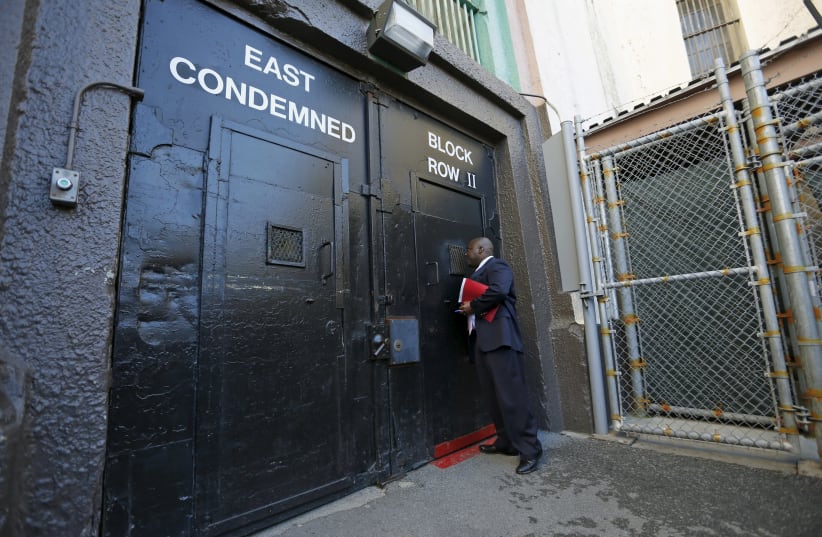Justen Hall, 38, is scheduled to die by lethal injection at 6 p.m. CST (0000 GMT) at the state's death chamber in Huntsville for the murder of Melanie Billhartz on Oct. 28, 2002.
According to prosecutors, Ted Murgatroyd, a recruit of Hall's gang, got into a fight with Billhartz that day in her truck on a trip to a convenience store in El Paso County.
When the pair returned to the drug house where gang members were gathered, Hall decided to killed Billhartz so she did not report the fight or the drug house to police, according to court documents.
Hall left the house with Billhartz in her truck and returned five hours later with her body in the back of the cab. He then ordered Murgatroyd to get a shovel and machete and go with him to New Mexico where they buried her body, court records said.
A month later, Hall confessed to police after they pulled him over while he was driving Billhartz's truck. Police found Billhartz's body and later determined that she was strangled with an electrical cord, according to court records.
In 2005, Hall was convicted and sentenced to death. Two years later, Hall filed an appeal challenging the DNA evidence. But in 2016, he withdrew the DNA appeal and asked for an execution date to be set.
“I have done this because I believe it's time for justice to be served, and to give the victim's family closure,” he wrote to the district attorney, according to court documents.
Hall would be the 19th inmate in the United States and the eighth in Texas to be executed in 2019, according to the Death Penalty Information Center. Texas has executed more prisoners than any other state since the U.S. Supreme Court reinstated the death penalty in 1976.
On Monday night, South Dakota executed a man convicted of fatally stabbing a former doughnut shop co-worker during a 1992 burglary.
